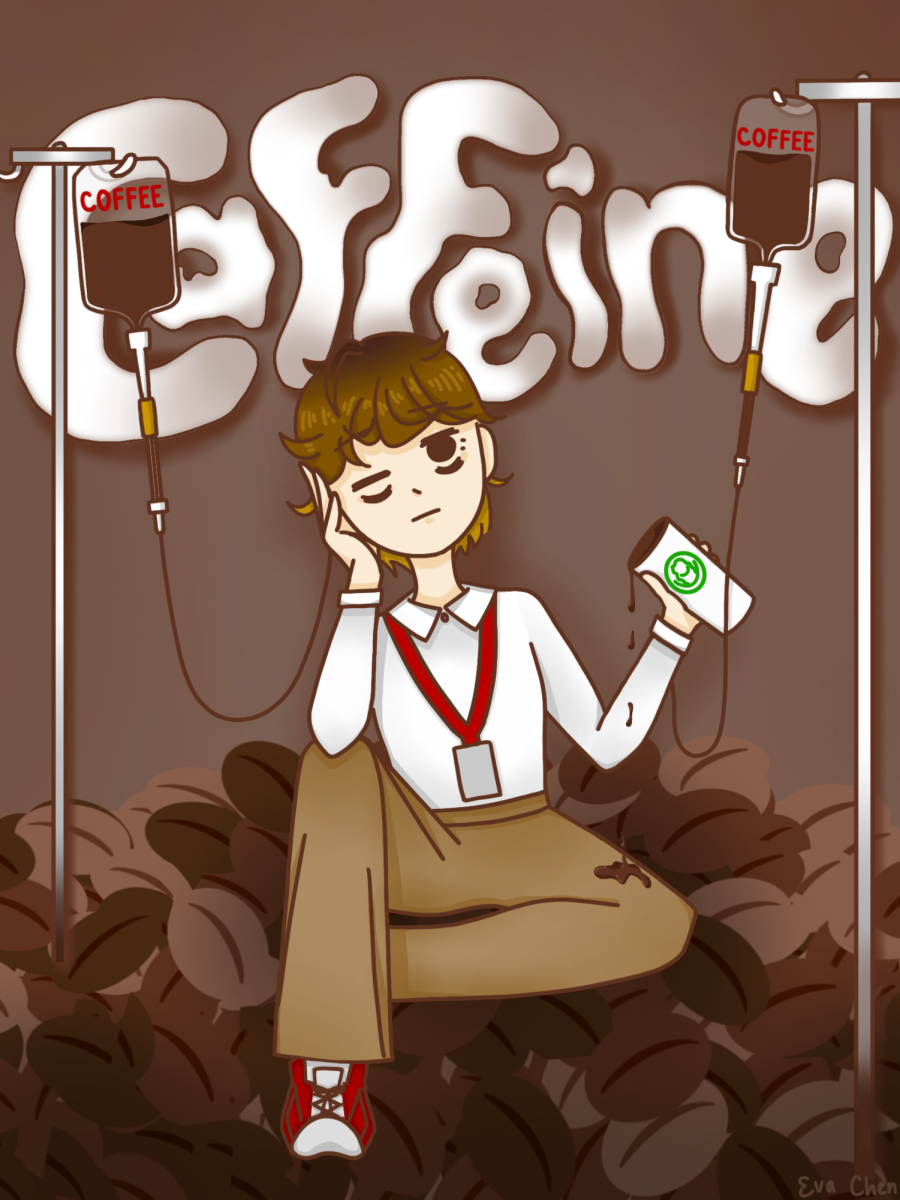“Feeling a little tired? Stayed up till 3 AM studying for a test you have second block? Simply addicted to caffeine?
Do not fear!
Just pick up a coffee (or energy drink) from the Ridge Cafeteria and get an instant hit of dopamine to help you power through your day!”
Just a quick walk around Ridge’s hallways will reveal hundreds of students with their morning purchase of caffeine, coming in the form of Kickstart, Red Bull, Starbucks, and more.
The caffeine business isn’t just booming at Ridge High School (which is likely making millions) — according to the National Coffee Association’s Coffee Impact Report, the coffee industry employed 2.2 million people and generated more than $100 billion in wages in 2022 [1]. On top of that, a Michigan University article surveyed parents across the country and found that “A quarter of parents report that caffeine is basically part of their teen’s daily life” [2].
It seems that we’ve forgotten that coffee and energy drinks aren’t just normal drinks — they’re stimulants that have become a scary alternative to sleep. Caffeine isn’t bad when taken in small controlled amounts, but when students are dependent on it to get them through the day, it becomes dangerous, posing detrimental effects like sleep deprivation. Chronic sleep deprivation has severe consequences on the body, including negative mental health effects, destruction of focus, fuzzy thinking, and can increase a person’s risk of getting dementia [3]. It’s important to recognize that caffeine shouldn’t be playing the part it has begun to play.
What’s even more concerning is the switch from coffee to energy drinks. The sales of energy drinks increased 47% between 2016-2021, with studies finding that almost ⅓ of teens aged 12-17 drink energy drinks regularly [4, 5]. This is all despite the fact that the American Academy of Pediatrics stated that energy drinks should be entirely avoided by teens [5].
There are a multitude of scientifically proven harmful effects:
- Teenagers and young adults who regularly consume energy drinks are at increased risk of future drug and alcohol abuse [6]
- They can lead to cardiovascular problems, nervous system disorders, heart rhythm disturbances, and more [7].
- Excessive consumption is proven to lead to relapse in individuals with pre-existing mental health conditions, as well as anxiety, manic symptoms, and suicidality [8].
- They are also exceptionally addictive due to having many stimulating substances like taurine, guarana, and ginseng [8].
An additional problem that we seem to be facing is that despite being aware of the negative side effects, teens seem to drink energy drinks and coffee anyways. Perhaps it’s because the impacts don’t always manifest right away. Or maybe it’s because we’ve grown up in a society that cares so much about our short term success, that we tend to be willing to sacrifice our long term health.
Either way, it’s time we do something about our caffeine consumption.
[1] https://artsci.tamu.edu/news/2024/05/the-pros-and-cons-of-daily-caffeine-intake.html
[2] https://ihpi.umich.edu/news/does-your-teen-consume-too-much-caffeine
[3]https://www.hopkinsmedicine.org/health/wellness-and-prevention/the-effects-of-sleep-deprivation
[4] https://www.nfhs.org/articles/the-shocking-truth-about-the-dangers-of-energy-drinks/
[5] https://www.hopkinsmedicine.org/health/wellness-and-prevention/energy-drinks-and-kids
[6] https://www.teensavers.com/post/the-link-between-energy-drinks-and-addiction

